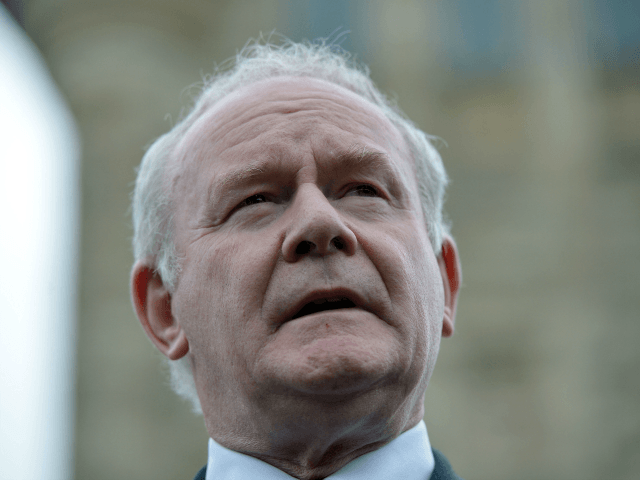LONDON (AFP) — Northern Ireland’s former deputy first minister and one-time IRA commander Martin McGuinness has died aged 66, his Irish nationalist party Sinn Fein said on Tuesday.
McGuinness had resigned from politics in January, citing a serious illness and a breakdown in relations with the rival Democratic Unionist Party.
“It is with deep regret and sadness that we have learnt of the death of our friend and comrade Martin McGuinness who passed away in Derry during the night,” Sinn Fein said in a statement.
The BBC said he had died of a rare heart condition.
Sinn Fein refused to appoint a replacement for McGuinness in January due to a row with the DUP, its partner in a power-sharing government set up to bring peace to the province.
That triggered local elections in which Sinn Fein made major gains against the pro-British DUP and the two parties are currently deadlocked, meaning that the British government could impose direct rule of Northern Ireland from London.
Ten years ago in May McGuinness had made history by entering a government with his once bitter foe, Ian Paisley of the DUP.
The decision to share power was a key part of the peace process in Northern Ireland, which endured three decades of violence in which more than 3,500 people died.
McGuinness was a commander in the IRA paramilitary group that fought for the province to leave Britain and join the Republic of Ireland to the south.
In a memorable gesture that would once have been unimaginable, he shook hands with Queen Elizabeth II during her visit to Belfast in 2012.
Sinn Fein President Gerry Adams called his former colleague a “passionate republican who worked tirelessly for peace and reconciliation and for the re-unification of his country.
“Throughout his life Martin showed great determination, dignity and humility and it was no different during his short illness,” he said in a statement.
McGuinness was born in 1950 in Derry, on the province’s northern coast, and grew up in the city when it was riven by sectarian bloodshed.
He became involved in the civil rights movement as a teenager and rapidly rose through the ranks of the IRA.
He was second in command at the time of Bloody Sunday in 1972, when British soldiers shot 26 unarmed republican protesters in Derry, killing 13 of them.
He served prison time for IRA-related activities, but later became a peacemaker as he negotiated a deal with loyalists and the British government.
McGuinness became Northern Ireland’s deputy first minister in 2007 working alongside former adversary Paisley, who was first minister.
Paisley’s son Kyle tweeted that he was “very sorry to hear about the passing of Martin McGuinness. Look back with pleasure on the remarkable year he and my father spent in office together.”
More recently, he served alongside first ministers Peter Robinson and then Arlene Foster until he quit in January over an energy policy scandal.

COMMENTS
Please let us know if you're having issues with commenting.